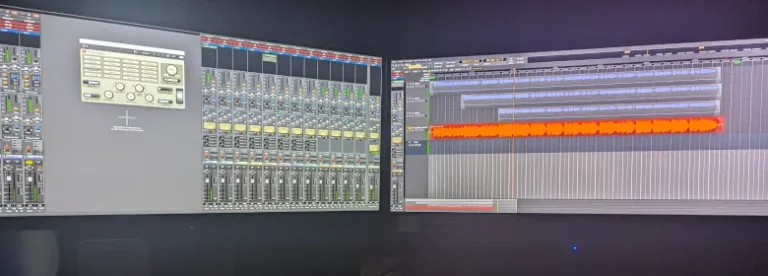Debunking the Myths
In the late 90s, while working for IBM, I stumbled upon Linux purely by coincidence. Back then, it was the talk of the tech community, an up-and-coming operating system that many praised highly. As a tech enthusiast, I jumped at the opportunity to try something new. I transitioned my web development hobby to Linux and found it to be quite satisfactory. Beyond web design, I operated a home recording studio, producing music for local talent. High-end musical instruments that came with simple computers and floppy disks meant I didn’t need my actual PC for audio work. Consequently, I could use Linux for internet browsing, email, Blender 3D modeling, and IRC chatting, which was all the rage in the late 90s.
Transition to New Technologies
After my tenure at IBM, I returned to teaching music and invested in new music technology, which allowed me to keep Linux as my main operating system. In 2009, like many others, I purchased an iMac, shifting my focus from music production to app development. Within a year, I had several music education apps on iTunes and Google Play. I also acquired two more computers, on which I installed Manjaro, a Linux distribution that suited my internet and web design needs perfectly.
The AI Revolution
Fast forward to 2023, a new paradigm shift emerged: Artificial Intelligence (AI). The online communities I frequented hailed Linux as the go-to operating system for AI—citing its speed and superiority. However, when I bought a powerful Zephyrus laptop to run some of the new AI software, I noticed that while image generation worked well, Linux struggled with audio AI applications. This led me to reconsider my setup. I decided to install Windows 11 on one of my PCs to see if it would handle audio better, and to my surprise, it did.
Reality Check: Linux vs. Windows 11
Using my two decades of Linux administration know-how, I configured my PC and was blown away when I couldn’t replicate the forum claims that Linux was twice as fast for AI applications. In fact, my NVIDIA graphics card performed better on Windows 11, and my USB sticks read and wrote data twice as fast compared to Linux. The more I read forum posts, the more confused I became. Why were people making such bold statements without concrete evidence?
My Linux and Windows Experience
Criticism is not exclusive to Windows; Linux faces its share too. Forums are filled with statements about how various desktop environments or distributions are subpar. What frustrates me is that these opinions often come from individuals who don’t create anything themselves, but rather, just play computer games and watch movies.
Over the years, my web design business grew, and I invested in high-quality equipment. However, I found that Linux on the desktop did not live up to its hype. As a new Windows user, I discovered that once the system is set up and unnecessary applications and services are removed, Windows is a joy to use. In the past two months, I’ve experienced little to no downtime. Linux, on the other hand, requires frequent upgrades, and its NVIDIA drivers are not as refined as Windows drivers. Additionally, my Android tablet cannot be used as an extended screen on Linux as it can on Windows, which matters a lot to me. I love using my tablet to control the audio faders of my DAW while Harrison Mixbus runs on Windows 11—no latency issues, just pure, uninterrupted creativity.
The Impact of AI
These days, I spend less time online because AI has replaced the forum noise, which was often frustrating and a waste of time. If you’re skeptical of AI, don’t be. AI is a game-changer and has significantly increased my productivity. If you want to run the latest AI software on your computer (assuming you have the hardware), install Pinokio on Windows 11 for a seamless experience.
I was inspired to write this blog post after watching a YouTube video where someone claimed that people are moving to Linux in droves. While anyone can switch to Linux easily, based on my experiences with the latest release of Windows 11 24H2, staying with Linux will be challenging unless you enjoy doing things the hard way.
The takeaway here is that Windows 11 offers enough customization options to tailor the system to your needs without sacrificing performance. In my experience, Windows 11 does not disadvantage the user; in fact, it has been a reliable and efficient OS.
Thank you for reading! Please leave a comment below and share your thoughts.
